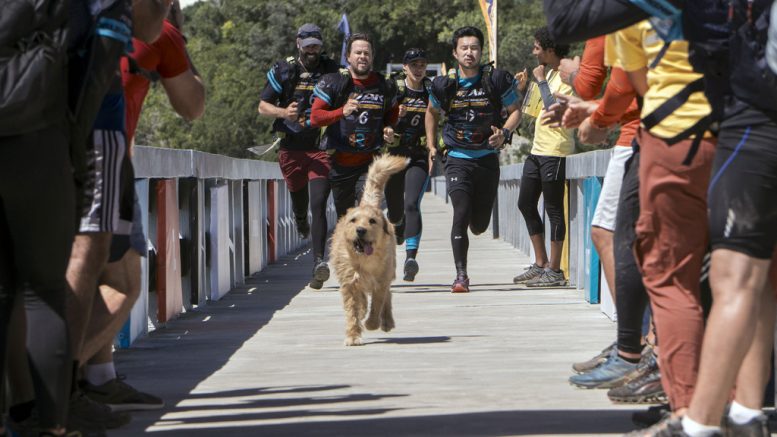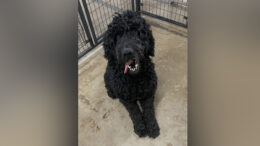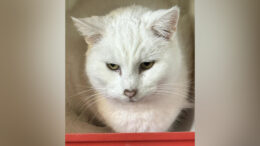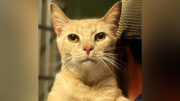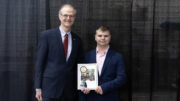The Associated Press
The new Mark Wahlberg movie “ Arthur the King ” is the cinematic version of an inspirational classroom poster. It means well and has something worthwhile to say, but for the most part, it’s also rather generic — an underdog story that hits the expected beats.
Wahlberg plays an adventure racer, Michael, who has yet to win a competition. We meet him one day into his “last shot” race, stuck in the mud with his team and unable to finish. It is, he says, weak of them. Cut to three years later and he’s in his idea of suburban purgatory, working for his dad and living in an extraordinarily nice house with his beautiful, former adventure racer wife and their young daughter. She gave it all up to be a mom, but he can’t get over the fact that he never won.
“Racers race,” he explains. She caves almost immediately, likely tired of mopey Michael, and tells him to go find some sponsors. He’s like the male Diana Nyad – maddeningly obsessed with proving his own greatness in a very niche sport.
It’s also based on a true story, that of racer Mikael Lindnord, and the book he wrote about the grueling endeavor “Arthur: The Dog Who Crossed the Jungle to Find a Home.” Did I mention there was a dog involved? Well, there is, but the main novelty of “Arthur the King” doesn’t even fully integrate into the story until almost 45 minutes in (the movie is only 90 minutes long). Director Simon Cellan Jones and his editor try to intersperse footage of the dog in his stray days on the streets of Santo Domingo, but the movie doesn’t feel like it’s even started until they get together.
And while I realize it’s a race, it all feels a little rushed and surface-level, lacking personality and distinctiveness without much to hang onto besides the travelogue shots of the Dominican Republic and a by-the-books score. The female characters are deficient too. Michael’s wife Helena (Juliet Rylance) is a “phone wife,” waiting at home and always in a full face of makeup with her blond mermaid locks cascading down her shoulders whether she’s post-workout or going to sleep. She’s only ever on screen to be reading about Michael or talking to him.
Their daughter is cute and gets to do exactly three cute things, also only as they relate to her dad, and then disappear into the background to…play quietly by herself, I guess. Nathalie Emmanuel at least gets to be part of the racing team, but her only distinguishing trait is being worried about her cancer-stricken father at home.
There is one rather extraordinary and tense sequence involving a broken zip line and our adventurers dangling with their bikes trying to get to the other line, but I’m not sure the adventure aspect really ever takes hold. Not even the “brothers in arms” banter between the teammates (including Ali Suliman and Simu Liu) is especially memorable or fun. You’re just going checkpoint to checkpoint on this 435-mile journey as Michael gets more and more attached to the dog and less and less invested in winning.
Somewhere along the way, Michael even starts caring about his teammates too. The IV line that he thought weak three years ago, he’s suddenly insisting for Leo (Liu), an Instagram famous racer who he was basically forced to recruit.
When the race ends the dog becomes even more central, and here is where the heartstrings are pulled (though it’s not exactly difficult to elicit emotions when the camera is pointed at a dog that might die). Michael says at some point that he’s never been a dog person or even had a pet, but somehow comes back to life in the company of this one. The real Michael started a foundation for animal welfare because of the experience.
Maybe the movie will direct some eyes toward the existence of the Arthur Foundation, but while the movie goes down easy enough it is, on the whole, a bit unsatisfying.
“Arthur the King,” a Lionsgate release in theaters Friday, is rated PG-13 the Motion Picture Association for “some strong language.” Running time: 90 minutes. Two stars out of four.

